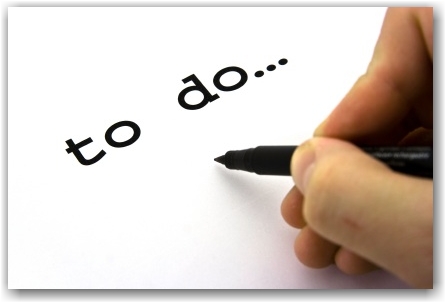Have you ever had goals that seemed to conflict with one another and throw off your work-life balance? I faced that situation earlier this week.
I really wanted to go to  the health club to exercise. I had been on a business trip over the last week and didn’t make the time to exercise much at all during the trip. I knew I needed to get back into exercising ASAP.
the health club to exercise. I had been on a business trip over the last week and didn’t make the time to exercise much at all during the trip. I knew I needed to get back into exercising ASAP.
But our family’s dog demanded my attention. My wife and kids had been gone all day, and the dog wanted me to play and rough-house with her. I knew I ought to spend some time with her, since she’d been cooped up all day. But I knew I needed to exercise too.
Then I had a thought: Instead of running on the track or treadmill at the health club, why not take the dog for a run outside? I’d get the exercise I wanted, and she’d get some exercise and play with me at the same time.
So I did it. I “killed two birds with one stone,” so to speak. That sounds kind of violent, but I don’t know what else to call it.
It’s not multi-tasking, where you attempt to do multiple tasks at the same time. This is different, because I only did one task but accomplished multiple goals at the same time.
Whatever I call it, I realized this could be big and give me a multiplier effect. Working on multiple goals with just one action could really add up and help me move farther, faster, toward my goals and dreams, and help me maintain balance in my life.
I’m starting to think about other goals that could be combined in one action. Which ones do you think could work for you?
You might also like:

 I’m always on the look-out for time management tips to help me improve my personal productivity. I recently heard about a concept called “time-tagging” from
I’m always on the look-out for time management tips to help me improve my personal productivity. I recently heard about a concept called “time-tagging” from 

Connect With Us